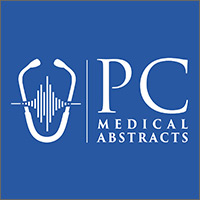User login
The video associated with this article is no longer available on this site. Please view all of our videos on the MDedge YouTube channel
Spyropoulos, A.C., et al, Clin Appl Thromb Hemost 23(6):532, September 2017
BACKGROUND: The American College of Chest Physicians (ACCP) recommends three months or at least six months of oral anticoagulant therapy, depending on history and risk factors, to prevent recurrent venous thromboembolism (VTE) events.
METHODS: This retrospective study coordinated at Hofstra School of Medicine evaluated adherence to the ACCP guidelines and associated clinical and economic outcomes. A US health care claims database identified 81,827 adults (median age 56 years; 52% male) with at least one claim for deep vein thrombosis or pulmonary embolism in 2008-2014, use of anticoagulation therapy after the index event, and continuous insurance coverage for one year before and after the event. Patients were classified as adherent (n=60,550; 74%) or nonadherent (n=21,277) with the ACCP minimum treatment durations. The primary study outcomes were VTE recurrence, all-cause and bleeding-related hospitalizations, and medical costs.
RESULTS: Most patients (94%) received warfarin. Nonadherent patients had significantly more VTE recurrences, resource use, bleeding complications, and costs during follow-up. On multivariate analysis controlling for patient characteristics, adherent patients had lower risks of all-cause hospitalization (adjusted odds ratio [AOR] 0.85; 95% CI 0.82-0.88; p<0.0001), bleeding-related hospitalization (AOR 0.74; 95% CI 0.69-0.78; p<0.0001), and VTE recurrence (AOR 0.92; 95% CI 0.88-0.97; p=0.0014), as well as lower total health care costs (mean difference -$2121; p=0.0003), VTE-related costs (-$2294; p<0.0001), and bleeding-related costs (-$248; p<0.0001).
CONCLUSIONS: In this large study, compliance with ACCP anticoagulant guidelines was associated with a reduction in VTE morbidity and health care costs. 16 references (aspyropoul@nshs.edu – no reprints)
The video associated with this article is no longer available on this site. Please view all of our videos on the MDedge YouTube channel
Spyropoulos, A.C., et al, Clin Appl Thromb Hemost 23(6):532, September 2017
BACKGROUND: The American College of Chest Physicians (ACCP) recommends three months or at least six months of oral anticoagulant therapy, depending on history and risk factors, to prevent recurrent venous thromboembolism (VTE) events.
METHODS: This retrospective study coordinated at Hofstra School of Medicine evaluated adherence to the ACCP guidelines and associated clinical and economic outcomes. A US health care claims database identified 81,827 adults (median age 56 years; 52% male) with at least one claim for deep vein thrombosis or pulmonary embolism in 2008-2014, use of anticoagulation therapy after the index event, and continuous insurance coverage for one year before and after the event. Patients were classified as adherent (n=60,550; 74%) or nonadherent (n=21,277) with the ACCP minimum treatment durations. The primary study outcomes were VTE recurrence, all-cause and bleeding-related hospitalizations, and medical costs.
RESULTS: Most patients (94%) received warfarin. Nonadherent patients had significantly more VTE recurrences, resource use, bleeding complications, and costs during follow-up. On multivariate analysis controlling for patient characteristics, adherent patients had lower risks of all-cause hospitalization (adjusted odds ratio [AOR] 0.85; 95% CI 0.82-0.88; p<0.0001), bleeding-related hospitalization (AOR 0.74; 95% CI 0.69-0.78; p<0.0001), and VTE recurrence (AOR 0.92; 95% CI 0.88-0.97; p=0.0014), as well as lower total health care costs (mean difference -$2121; p=0.0003), VTE-related costs (-$2294; p<0.0001), and bleeding-related costs (-$248; p<0.0001).
CONCLUSIONS: In this large study, compliance with ACCP anticoagulant guidelines was associated with a reduction in VTE morbidity and health care costs. 16 references (aspyropoul@nshs.edu – no reprints)
The video associated with this article is no longer available on this site. Please view all of our videos on the MDedge YouTube channel
Spyropoulos, A.C., et al, Clin Appl Thromb Hemost 23(6):532, September 2017
BACKGROUND: The American College of Chest Physicians (ACCP) recommends three months or at least six months of oral anticoagulant therapy, depending on history and risk factors, to prevent recurrent venous thromboembolism (VTE) events.
METHODS: This retrospective study coordinated at Hofstra School of Medicine evaluated adherence to the ACCP guidelines and associated clinical and economic outcomes. A US health care claims database identified 81,827 adults (median age 56 years; 52% male) with at least one claim for deep vein thrombosis or pulmonary embolism in 2008-2014, use of anticoagulation therapy after the index event, and continuous insurance coverage for one year before and after the event. Patients were classified as adherent (n=60,550; 74%) or nonadherent (n=21,277) with the ACCP minimum treatment durations. The primary study outcomes were VTE recurrence, all-cause and bleeding-related hospitalizations, and medical costs.
RESULTS: Most patients (94%) received warfarin. Nonadherent patients had significantly more VTE recurrences, resource use, bleeding complications, and costs during follow-up. On multivariate analysis controlling for patient characteristics, adherent patients had lower risks of all-cause hospitalization (adjusted odds ratio [AOR] 0.85; 95% CI 0.82-0.88; p<0.0001), bleeding-related hospitalization (AOR 0.74; 95% CI 0.69-0.78; p<0.0001), and VTE recurrence (AOR 0.92; 95% CI 0.88-0.97; p=0.0014), as well as lower total health care costs (mean difference -$2121; p=0.0003), VTE-related costs (-$2294; p<0.0001), and bleeding-related costs (-$248; p<0.0001).
CONCLUSIONS: In this large study, compliance with ACCP anticoagulant guidelines was associated with a reduction in VTE morbidity and health care costs. 16 references (aspyropoul@nshs.edu – no reprints)
Learn more about the Primary Care Medical Abstracts and podcasts, for which you can earn up to 9 CME credits per month.
Copyright © The Center for Medical Education
